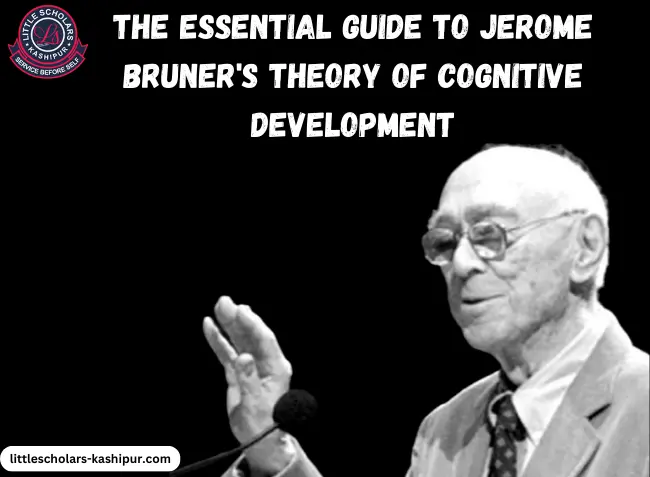Education is a dynamic field shaped by theories that revolutionize how we understand learning. One of the pivotal figures in educational psychology is Jerome Bruner, whose theories have significantly impacted teaching practices worldwide. This article delves into the Jerome Bruner theory, exploring its concepts, applications, and enduring influence.
What is Bruner's theory of cognitive development?
Bruner's theory of cognitive development is a key concept in understanding how children learn and grow intellectually. Jerome Bruner, a renowned psychologist, proposed that cognitive development occurs in three stages: enactive, iconic, and symbolic. In the enactive stage, learning is based on physical actions and experiences. As children progress to the iconic stage, they begin to use images and visual aids to understand concepts. Finally, children use language and symbols in the symbolic stage to think abstractly and solve problems. Bruner emphasized the importance of scaffolding, where teachers and caregivers provide support and gradually remove it as children become more competent. This theory highlights the role of culture and social interaction in cognitive development, making it a vital framework for educators. Understanding Bruner's theory helps in creating effective teaching strategies that align with the natural progression of a child's learning process. By incorporating hands-on activities, visual aids, and symbolic thinking, educators can foster a deeper understanding and retention of knowledge in students. Importance of Jerome Bruner's Work in Education
Bruner's theories are crucial, as they provide educators with frameworks to enhance teaching effectiveness and student engagement. By understanding Bruner's contributions, educators can create learning environments that foster critical thinking and creativity.
Who is Jerome Bruner?
Born on October 1, 1915, in New York City, Jerome Seymour Bruner developed a keen interest in psychology and education from a young age. He pursued his academic journey at Harvard University, later becoming a prominent faculty member.
Academic Career and Contributions
Bruner's career spanned decades of research and teaching, during which he authored numerous influential works on cognitive psychology and educational theory. His interdisciplinary approach bridged psychology, philosophy, and pedagogy, shaping modern educational practices.
Overview of Jerome Bruner's Theory
Jerome Bruner's theory revolves around the concept of cognitive development through three stages of representation: active, Iconic, and Symbolic. These stages illustrate how individuals perceive and process information as they grow and learn.
Key Concepts: Enactive, Iconic, and Symbolic Representation
1. Enactive Representation: Involves learning through actions and physical interactions with the environment.
2. Iconic Representation: Refers to learning through visual images and representations.
3. Symbolic Representation: Involves learning through language and abstract symbols, enabling higher-order thinking and problem-solving.
Top 15 Exam Preparation Techniques for Students: Read more
Influence on Cognitive Psychology and Education
Bruner's theory challenged behaviourist views predominant at the time by emphasizing the active construction of knowledge. This constructivist approach suggests that learners build understanding by actively exploring and interacting with their surroundings.
The Spiral Curriculum
Definition and Purpose
Central to Jerome Bruner's educational philosophy is the concept of the spiral curriculum, where topics are revisited at increasing levels of complexity over time. This approach ensures continuous learning and deeper understanding as students progress through their education.
Implementation and Benefits in Education
The spiral curriculum encourages a cumulative approach to learning where foundational concepts are reinforced and expanded upon through repeated exposure. This method not only enhances retention but also promotes critical thinking and problem-solving skills.
Constructivist Approach
Principles of Constructivism
Bruner advocated for a constructivist approach to education, where learners actively construct knowledge based on their experiences and interactions. This learner-centered approach contrasts with traditional, teacher-centered methods by emphasizing student engagement and inquiry.
Application in Teaching and Learning
In practice, constructivism encourages educators to facilitate meaningful learning experiences that promote discovery and exploration. By aligning teaching strategies with Bruner's principles, educators can create environments that stimulate intellectual growth and creativity.
Discover Environmental Studies: Connecting with Nature: Read now




